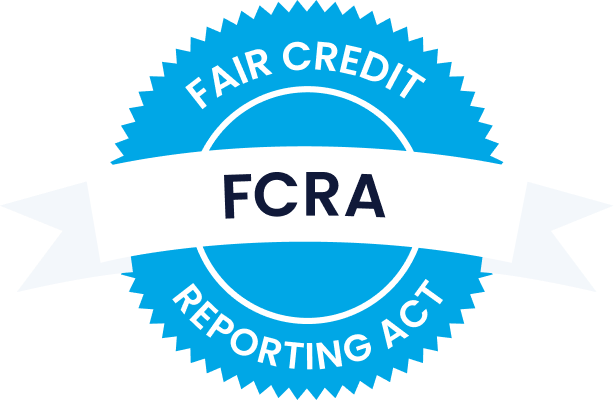Rent concessions are a powerful tool for attracting and retaining quality tenants. While the immediate impact is a hit to your bottom line, concessions that genuinely help your tenants and make their stay pleasant can set up your rental property for long-term financial success.
However, rent concessions aren’t something to hand out liberally. Being too generous can leave you struggling to make a profit while only your tenants reap the benefits. In this guide, we’ll explain what you must consider before adding concessions to your lease and explore situations where they work best.
What is a rent concession?
A rent concession is a discount or benefit a landlord offers a tenant as part of the lease agreement. One of the most common concessions is a reduced rent fee for a specific period, but it can also include waived security deposits, complimentary amenities, and various other financial incentives. A rent concession can provide a one-time benefit upfront or span the entire lease term.
Rent concessions are a tried-and-true strategy landlords use to draw attention from renters in competitive markets, fill vacancies faster, and incentivize lease renewals. If done right, they lead to positive outcomes for the tenant and landlord, making them a win-win component of a lease agreement.
When do I offer a rent concession?
While rent concessions can positively contribute to your rental business, you should offer them only when it’s to your advantage to do so. Before deciding to incorporate a concession or two in your lease, here are some factors to consider.
Rental market conditions
In a market where demand for rentals is weak but scores of properties are available for rent, tenants have the upper hand. They’re spoiled for choice and will take time to sign a lease agreement, so properties remain vacant longer. In such a hyper-competitive environment, offering a concession can help your rental stand out and get more attention from renters.
When assessing rental market conditions, remember to consider seasonal trends, too. For example, during the winter, demand for rentals drops, as people aren’t keen on moving when it’s snowing and bitterly cold. However, adding an enticing concession to your lease may spur them to act.
Property vacancy
Has your property been sitting empty for a prolonged period? If so, you’re losing money, as no tenant means no income (unless you have a cushy reserve fund). In this scenario, adding a rent concession to your lease can help you acquire a tenant faster and minimize the financial losses that come with vacancies.
Competitive advantage
Your rental property must, at minimum, match your competition’s selling points to attract a reliable tenant. Suppose the home next door offers one month’s free rent and a complimentary Netflix subscription. In that case, consider providing the same or similar incentives in your lease.
Tenant quality
Let’s say you’ve interviewed a potential tenant who earns a solid income, has excellent credit, and glowing landlord references. However, they have reservations about your rent price, and you’re worried about them seeking other properties. In that case, offering a prorated rent deduction or similar concession may be enough to sway them into accepting your deal.
Tenant retention
Adding one or more concessions can encourage your existing tenant to renew their lease. As a result, you’ll save time and money on finding their replacement once they move out. So consider brainstorming ideas for concessions as the lease expiration date approaches.
Tenant financial hardship
If your tenant is experiencing financial distress, a temporary rent concession, such as flexible payment terms or reduced rent, can provide much-needed relief. Aside from being a compassionate gesture, incentives like these can help build a positive landlord-tenant relationship. Tenants who are treated with respect and kindness are more likely to take proper care of their rental and stay for the long term.
Types of rent concessions for prospective tenants
Now that you know when rental concessions work best, let’s explore the different types you can offer to tenants.
Free month’s rent
Perks like a month of free rent can be very enticing for tenants. Consider adding this sought-after concession to your lease if you urgently need to fill a vacancy—tenants will be motivated to move in quickly to take advantage of the complimentary month.
Reduced rent
Discounting your regular rent fee for a brief period, such as two or three months, is a great way to draw more attention from renters, especially when the economy heads south, and money is hard to come by. Alternatively, you can prorate your reduction over the entire lease term.
Free parking or storage
Parking spaces and storage units are scarce or expensive in some residential areas. You can score points with tenants seeking these amenities by providing free or discounted parking spots and storage units.
Utilities included
Including utilities like water, gas, electricity, cable, and internet with your rent can give you an edge over your competition, especially if utilities are costly in your area. This concession simplifies tenants’ rental obligations as they only have one bill to manage and are spared from having to set up the services personally.
Lease term flexibility
To generate interest in your property from a larger pool of renters, consider loosening your lease terms and minimizing lease break penalties. Renters who value flexibility regarding their housing needs, such as local college students, may be more willing to give your rental a chance.
Waived fees
In addition to the monthly rent, tenants pay other fees, such as screening costs, security deposits, and pet fees. Consider eliminating or reducing these extra charges. Tenants who are strapped for cash will appreciate the financial relief, as these fees are typically payable upfront before the move-in date.
Reimbursement of moving costs
Besides being stressful and time-consuming, moving to a new home can cost tenants a bundle. But you can help them make things more affordable by covering expenses like truck rentals and storage units.
Property upgrades
Ask your tenant to create a wish list of items and amenities they would like to have in the rental unit. For example, if they loathe traveling to a laundromat, consider purchasing a washer and dryer for the property. Improving the living space can enhance your tenants’ comfort, convenience, and security, making them more likely to renew their lease.
What are the benefits of offering a rent concession?
There’s no doubt that rent concessions are advantageous for tenants. But, as a landlord, they offer numerous benefits as well, including the following:
Maintaining a competitive edge
Finding a tenant in a crowded housing market won’t be easy. It could take weeks or months to fill your vacancy, especially if there’s nothing that sets your property apart from competing units. Including one or two enticing concessions will generate more interest from renters, helping you find a suitable tenant faster.
Lower vacancy costs
An empty property is one of the most significant risks you face as a landlord. Without rental income to offset your mortgage payments, utility fees, insurance premiums, and other recurring expenses, you can quickly find yourself in the red.
Adding a compelling rent concession to your lease can help you fill vacancies faster, helping you maintain a steady cash flow to cover your renter’s operating costs.
Recurring lease renewals
If your tenant moves out after their lease ends, you must spend time and money on
- Advertising your property
- Tidying up the premises
- Answering inquiries from renters
- Vetting new tenants
- Drawing up a fresh rental agreement
- And more.
However, you can avoid all those hassles and expenses by offering a compelling incentive for them to stick around. Upgrading appliances, discounting the rent, paying for a streaming service, and other gestures may convince them to renew their lease.
Improve tenant retention
Tenant retention is a foolproof way of evading problematic tenants. The higher your turnover, the more tenants you’ll see over the lifetime of the property. This will increase the chance of getting a tenant who doesn’t mesh with your management style. If you value your current tenants, provide a concession that genuinely helps them—they’ll be less likely to move out.
Additional help with maintenance tasks
An often overlooked advantage of rent concession is assistance from your tenant in maintaining your property. While tenants are accountable for keeping the living space clean and doing menial tasks like changing burnt-out light bulbs, the bulk of rental maintenance rests with you as the landlord.
However, you can offer your tenant a concession in exchange for taking on additional maintenance work. By doing so, they can enjoy the benefits of the new perk while you have more time to attend to other duties.
Positive reputation as a landlord
By offering generous rent concessions, you can establish a positive reputation as a landlord and build goodwill with renters and your broader community. If you treat tenants well, word gets around, resulting in increased referrals, enthusiastic reviews online, and more visibility for your rental, all of which can help you boost your income.
What are the risks of offering a rent concession?
While rent concessions can be an effective tool for attracting and retaining tenants, they have some potential disadvantages to be aware of:
Reduced revenue
A rent concession will negatively impact your revenue. If you waive the first month’s rent or provide a discount on amenities, that’s money out of your pocket. Depending on how high your operating costs are, offering concessions may not be a sustainable strategy for keeping tenants happy.
Unrealistic expectations
Your tenant might grow accustomed to your concessions and expect more in the future. For example, if you offer a deep discount on rent, raising it in the future could be problematic, as you risk agitating your tenant. The more accommodating you are with your concessions, the more pressure you’ll face to maintain them.
Negative perceptions
While tenants usually respond favorably to rent concessions, sometimes they can be skeptical of your offering. Discerning tenants might wonder why you’re being so generous, fearing that there are issues with the property, hidden fees, or that you’re operating a rental scam.
Tenant turnover
Rent concessions may attract tenants motivated primarily to benefit from them rather than secure long-term housing. Once the concessions end or they find a better deal elsewhere, they may move out. As a result, your turnover rate and the costs that go with it will increase.
Legal and regulatory compliance
Rent concessions may lead to legal disputes with tenants, especially if the terms are vague and complex. You could also be subject to fines and penalties if your concessions violate local residential tenancy laws.
Exposure to unforeseen risks
A rent concession may be helpful in the short term, but it could cause issues down the road. For example, suppose you waive the security deposit requirement for a tenant who later damages your property. In that case, you’ll be responsible for the total cost of repairs once they move out.
Pro landlord tips on how to offer a rent concession
Put yourself in your renter’s shoes. When deciding how much to discount off rent, Weigh the benefits, costs, and efforts of moving versus the potential savings of how much is being offered for the rent concession.
So, how much would you save to prevent you from moving? Generally, this means $100 or more.
Our final thoughts
Rent concessions can help you minimize turnover costs, fill vacancies quickly, and retain quality tenants, making them an indispensable tool for ensuring the success of your rental business.
However, it’s crucial to use rent concessions only when they make practical and financial sense; otherwise, you risk losing money on your property investment or getting stuck with problem tenants who don’t appreciate them. So, always put thought and planning into deciding on the type of concession to put in your lease. Consider the needs and preferences of renters in your area, the state of the market, and what your competition offers.
Adding an enticing rent concession can grab the attention of renters, but always remember that proper vetting is essential to securing a quality tenant. Find out how to find and secure reliable tenants using tenant screening platforms.





